Crude oil at US$100 by Christmas? Strategists are split on whether this rally will continue
In case you have not noticed, crude oil has been on a tear. Brent Crude, which is the global benchmark domiciled in London, is up 25% in the last three months alone. In fact, traders have not actually seen a sub-US$70/barrel price on crude oil since the end of 2021.
The chief reason falls squarely at the door of OPEC+ (OPEC plus Russia), the cartel of nations that produce most of the world's oil. The cartel, led by Saudi Arabia, recently agreed to cut back production and therefore, keep prices higher for longer. This, combined with increased demand in the back half of the Northern Hemisphere summer, has created a perfect storm for prices.
But ask strategists whether they think this can go on and you will actually get some divergence in views.
At one end, Goldman Sachs is so adamant this rally can continue that they have upgraded their end-of-year oil price forecast to US$100/barrel. ANZ isn't giving a firm figure but they haven't ruled it out either.
At the other end, ING Economics believes this rally is not sustainable. Neither does Capital Economics, which argues that headline inflation won't rise materially even if this benchmark crude price stays mostly where it is now.
In this wire, I'll present the bull and bear case for where crude oil prices may go. I'll show you a technical factor that can help you understand why oil prices move the way they do - helping to make you a more knowledgeable investor.
The chart to watch: When will higher oil prices feed into energy company share prices?
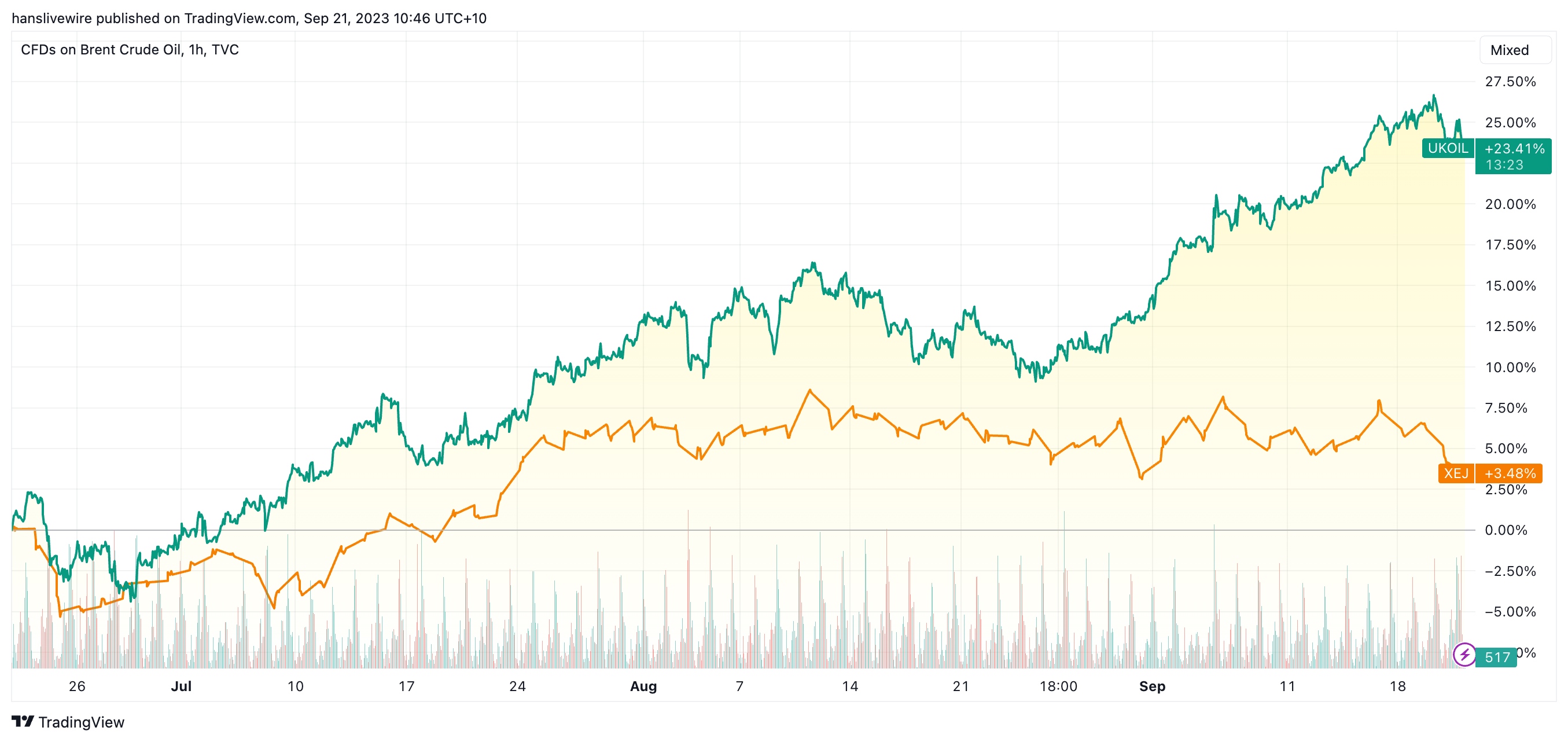
The bullish case has three different reasons
Two research houses recently bumped up their 12-month oil calls to US$100/barrel - Goldman Sachs and Standard Chartered. Goldmans actually went one better, arguing oil will trade above US$80/barrel for all of the next 12 months. And you can thank (hate) one group for that:
"Overall, we believe OPEC will be able to sustain Brent [crude oil] in an $80-$105 range in 2024 by leveraging robust Asia-centric global demand growth by exercising its power assertively," analysts led by Daan Struyven wrote earlier this week.
But they also added this caveat:
"We believe most of the rally is behind us, and that Brent is unlikely to sustainably exceed US$105/bbl next year," they wrote.
So that's one small inkling of good news for motorists.
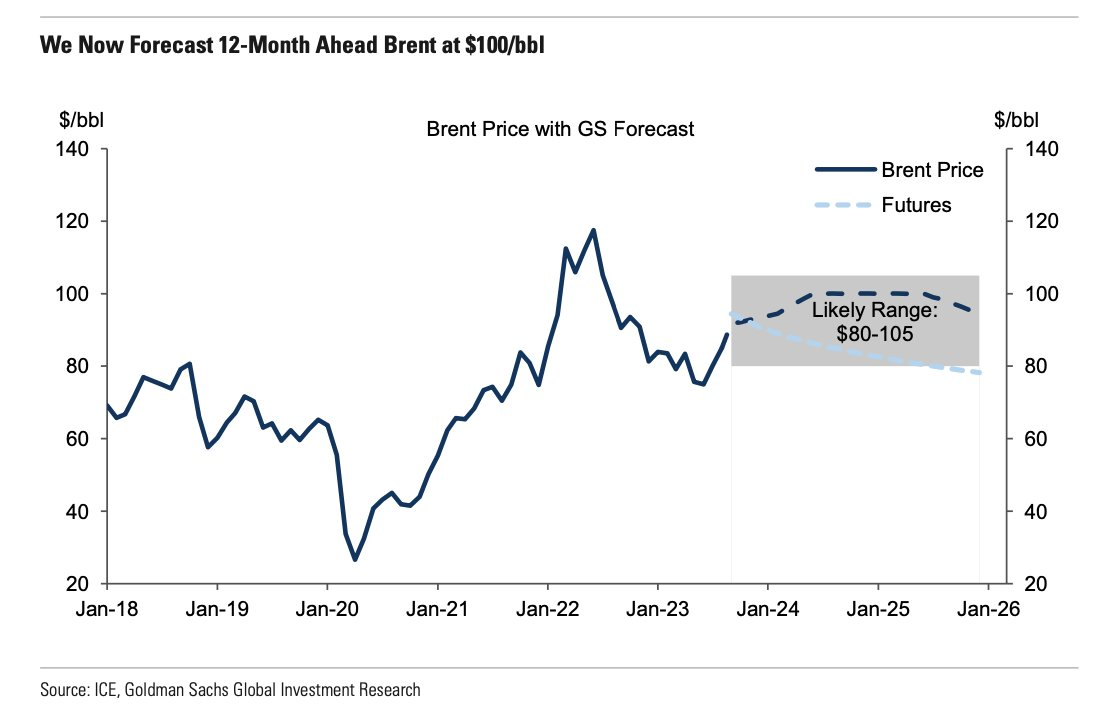.png)
ANZ's commodities czar, Daniel Hynes, has yet a different view. While he wouldn't rule out US$100/barrel oil, he says it's all down to one country and one only.
"The market remains beholden to Saudi Arabia’s oil policy. The kingdom has approximately three million barrels per day of spare capacity at its disposal and could quickly ramp up supply. Even so, the subsequent drawdown in inventories leaves the market exposed to further price spikes," Hynes wrote in a client note this week.
There is also a different, less talked about reason floating around - technical analysis. As the Wall Street Journal's Anna Hirtenstein first pointed out, hedge funds have been playing games with crude oil contracts in the commodity futures markets.
Until this past winter, oil futures showed the deepest net-short positioning since 2016, meaning many investors were set up to benefit from cheaper oil. But in markets, you never get too pessimistic and you never get too optimistic either. And as all those people who were betting on cheaper oil have found out, technical indicators can work against you.
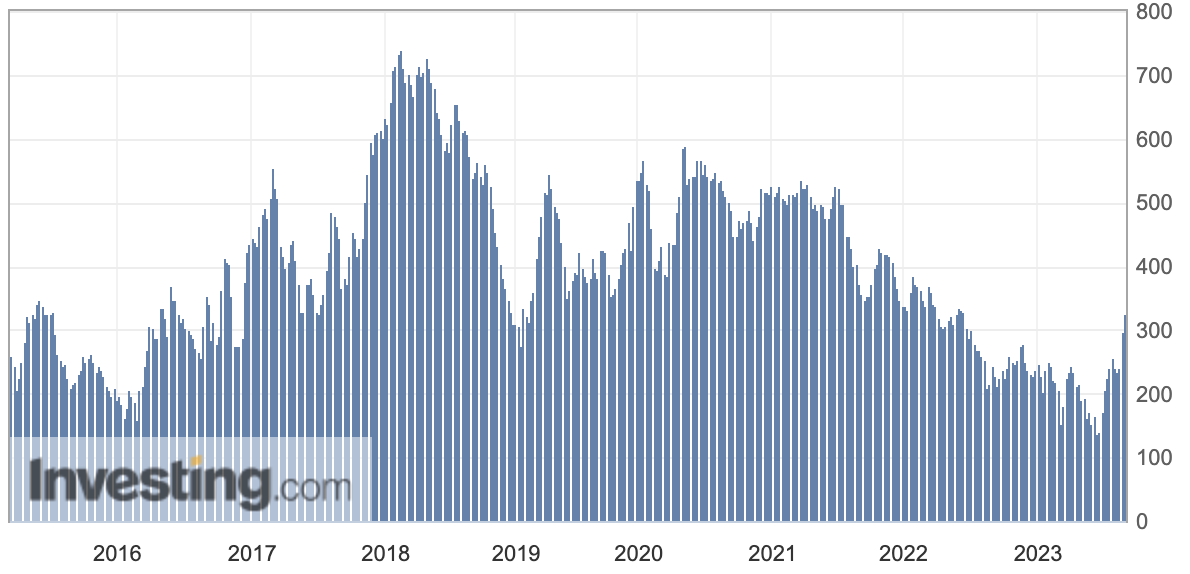
The bearish case also has three primary reasons
Let's pick up right where we left off - on the conversation of net positioning (net short positioning means more traders are bearish and vice versa for net long). The WSJ article that I referenced earlier spoke to how net short positioning was at seven-year lows until recently. So what's happened since then? This Bloomberg chart will show you.
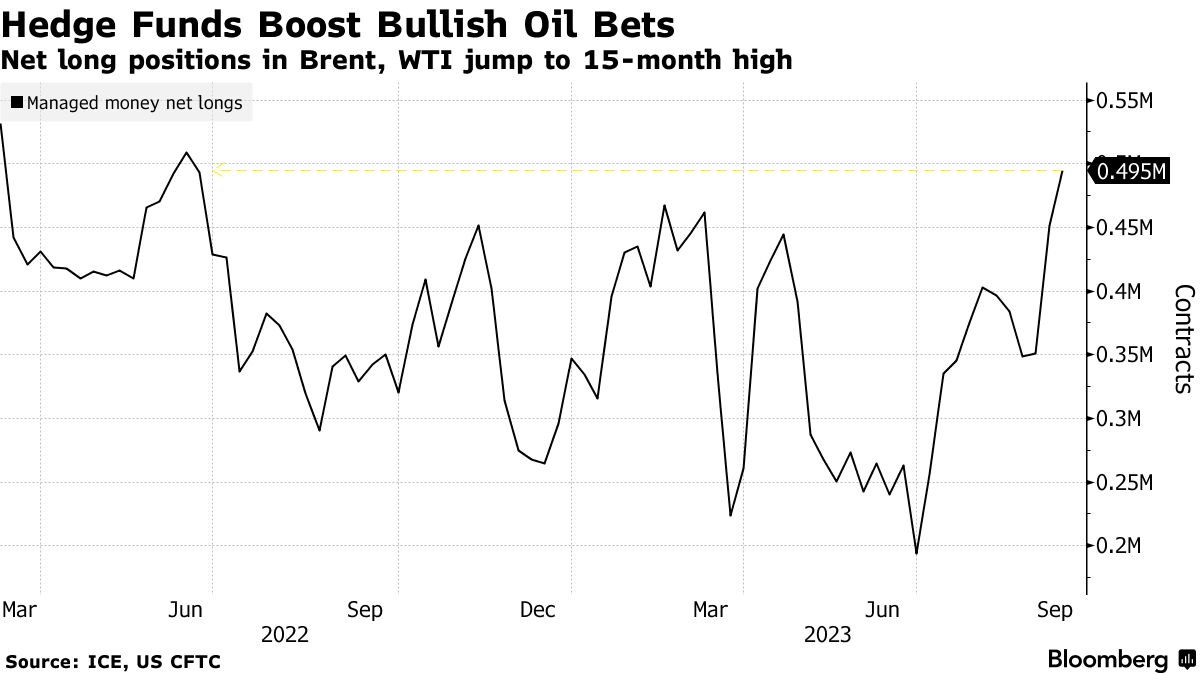
If those bullish oil bets were to be unwound, so would the oil price.
At the fundamental level, ING Economics argues OPEC+ is happy with its effect on the markets and will see fit to unwind at some point - or at least bow to pressure to relax its production curbs.
"OPEC+ supply cuts have had their desired effect on the oil market," ING analysts wrote.
"Assuming OPEC+ doesn't budge with its supply cuts in the near term, it is only a matter of time before Brent breaks above $100/bbl, given the scale of the deficit. However, we do not believe such a move would be sustainable, which is why we are holding onto our current forecast for Brent to average US$92/bbl over the fourth quarter of this year," they added.
Citi's veteran head of commodities coverage Ed Morse would tend to agree with this view, calling the rally "unsustainable".
"$90 prices look unsustainable given faster supply growth than demand growth ex-Saudi/Russia," he wrote to clients recently. "Higher prices in the near term could make for more downside for prices next year."
Citi's analysts see oil averaging $84 in the fourth quarter 2023 and moving to the low-$70 range in 2024. That makes for a big gap between Citi and Goldmans.
Oil and inflation
The other consideration is what happens to inflation. Traditionally, oil price spikes are good precursors for inflation surges and an ensuing recession. But Capital Economics has a view that - all together now - this time is different. It needs to be said, however, that their 12-month price forecast for crude oil is much closer to Citi than it is to Goldman Sachs.
"If Brent crude prices stay at their current level of around US$95/barrel, energy will actually be a drag on headline inflation in developed markets through to the end of the year. Things get more complicated by early 2024, when oil is likely to make a positive contribution to headline inflation. But this is likely to be overwhelmed by other disinflationary forces," analysts argued this week.
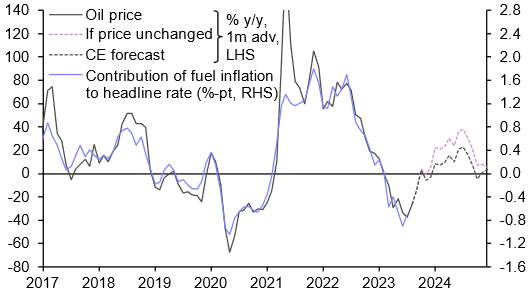
Nonetheless, it's a significant point of concern for central banks around the world. Monetary authorities have been desperate to see inflation come back down to target without needing this spanner thrown in the works. If the oil price remains elevated, there is a risk that headline inflation (especially) will remain higher for longer.
And to use a highly technical term from Federal Reserve chair Jerome Powell, it's "a significant thing" to watch.
3 topics

